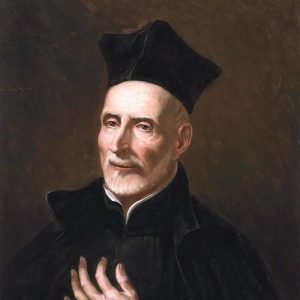 Saint Joseph Calasanz, born in Peralta de la Sal, Spain, in 1557, was a pioneering figure in education and a champion of providing free education to children from all social backgrounds. After completing his studies in law and theology, he embarked on a career in the Church, serving in various roles in Spain. However, a profound spiritual experience in Rome led him to dedicate his life to the education of the poor and marginalized.
Saint Joseph Calasanz, born in Peralta de la Sal, Spain, in 1557, was a pioneering figure in education and a champion of providing free education to children from all social backgrounds. After completing his studies in law and theology, he embarked on a career in the Church, serving in various roles in Spain. However, a profound spiritual experience in Rome led him to dedicate his life to the education of the poor and marginalized.
In 1597, Calasanz founded the first free public school in Europe, known as the Pious Schools. His innovative approach to education focused on providing a holistic education that nurtured both the intellectual and spiritual development of children. He emphasized the importance of discipline, moral formation, and religious instruction alongside academic subjects. His schools welcomed children from all walks of life, regardless of their social status or ability to pay.
Calasanz’s work faced opposition from some quarters, who saw his schools as a threat to the established order. However, his unwavering commitment to his mission and the success of his schools earned him the support of many influential figures, including Pope Clement VIII. The Pious Schools expanded rapidly throughout Italy and other parts of Europe, providing a vital educational opportunity to countless children who would otherwise have been denied access to learning.
Despite facing challenges and setbacks, including internal conflicts within his order and accusations of heresy, Calasanz persevered in his mission until his death in 1648. He was canonized by Pope Clement XIII in 1767, and his feast day is celebrated on August 25th. He is recognized as the patron saint of Christian schools and is revered for his pioneering work in education and his tireless advocacy for the poor and marginalized.
Saint Joseph Calasanz’s legacy continues to inspire educators and advocates for social justice around the world. His vision of providing quality education to all children, regardless of their background, remains as relevant today as it was in his own time. His life and work serve as a reminder of the transformative power of education and the importance of investing in the intellectual and spiritual development of young people.




